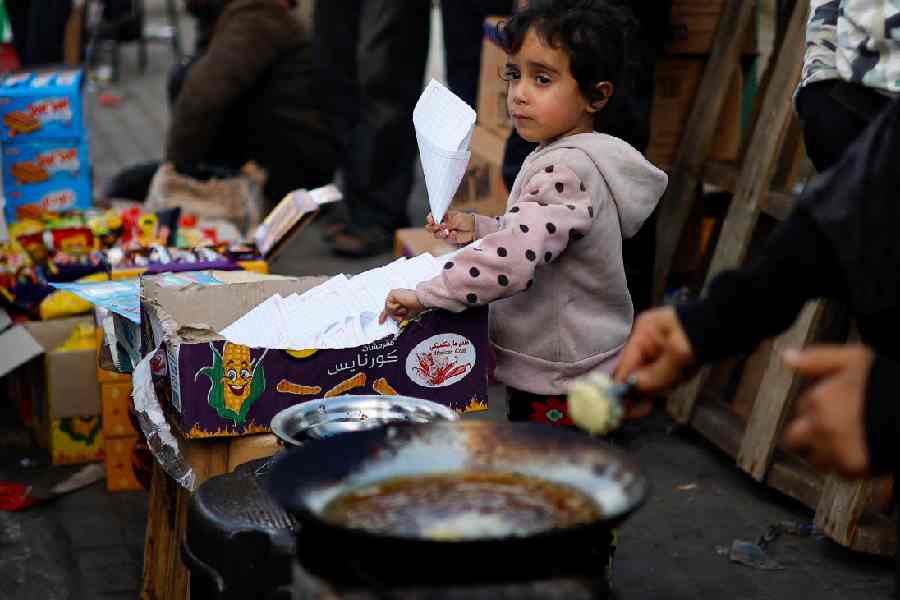American, Israeli and Lebanese officials insist that few parties want Israel’s war in the Gaza Strip to become a wider conflict that engulfs West Asia.
But the assassination of a top leader of Hamas in Lebanon on Tuesday, and the deaths of scores of people in mysterious twin explosions in Iran on Wednesday, threatened to bring West Asia — and the US — closer to the brink of a regional war, which the Biden administration has tried to stave off since Hamas’ deadly attacks against Israel on October 7.
Just hours after the bombs went off in Iran, the US and 12 of its allies issued a written warning to another militia group in the region, the Houthis of Yemen, who have been mounting near-daily missile, drone and seaborne attacks on commercial vessels.
So far the US has held back from retaliating against Houthi bases in Yemen, in large part because it does not want to undermine a fragile truce in Yemen’s civil war.
But now Biden officials are signalling that their patience is running out. “Let our message now be clear: We call for the immediate end of these illegal attacks and release of unlawfully detained vessels and crews,” White House officials said in a statement issued on Wednesday, a day after shipping giant Maersk announced it would pause operations in the Red Sea.
“The Houthis,” the statement continued, “will bear the responsibility of the consequences should they continue to threaten lives, the global economy, and the free flow of commerce in the region’s critical waterways.”
The warning — also signed by Britain, Australia, New Zealand, Bahrain, Belgium, Canada, Germany, Denmark, Italy, Japan, Singapore and the Netherlands — stopped short of threatening military strikes. Over the weekend, the US Navy sank three Houthi boats, killing all the crew members, when they fired on US helicopters coming to aid a Maersk cargo ship.
On Monday, Iran’s navy announced the deployment of a flotilla of warships to the waterway. On the same day, foreign minister Hossein Amirabdollahian of Iran expressed “gratitude and appreciation” to a Houthi official visiting Tehran for the group’s support for Hamas, the government-run IRNA news agency reported.
A senior Iranian official said dispatching the warships, which join an Iranian spy ship already in the region, was meant to signal that Iran is supporting the Houthis and to raise the stakes. But the official said Iran has no plans for the warships to engage in a confrontation with US naval vessels in the waterway.
President Joe Biden has said he wants to avoid direct military attacks on the Houthis to avoid escalating a West Asia conflict.
“We remain incredibly concerned, as we have been from the outset of this conflict, about the risk of the conflict spreading into other fronts,” Matthew Miller, a state department spokesperson, told reporters on Wednesday.
Hezbollah, the powerful Lebanese militant group, has pledged that Tuesday’s killing of Saleh Arouri, the Hamas leader, in a Beirut suburb, would not pass without a response. A key ally to Hamas, Hezbollah exercises de facto control over Beirut’s southern suburbs where the explosion occurred and has been engaged in escalating clashes with Israeli forces for months.
The circumstances surrounding the blasts at a memorial for Iranian General Qassem Soleimani, in Kerman, Iran, were murkier. While Iran was quick to blame Israel, European and American officials said they doubted that the Israelis conducted the strike: Most of their actions against Iran have been highly targeted, from taking out the chief architect of Iran’s nuclear programme to blowing up specific nuclear facilities.
Three senior American officials and one senior European official said on Wednesday that the Islamic State group or another terrorist group was a possible perpetrator. While there is some intelligence that points to Islamic State involvement in the attack, the officials cautioned the assessment is preliminary and no final conclusions have been drawn.











